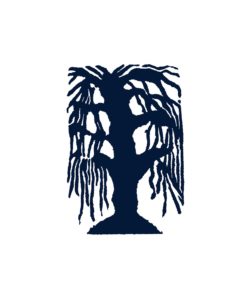
For many people, accessibility to a college education is fraught with hurdles that are becoming increasingly difficult to clear. But Hope Forward has made all the difference for my daughter.
Starting with the assumption that college education in America excludes most Americans while basic education is deficient, the opportunity to attend college is reduced. Furthermore, the costs of that college education are a financial burden on those who have the privilege of receiving it. In recent decades, the ability to improve financially with only a bachelor’s degree has been hampered. Companies are no longer basing their hiring decisions solely on an applicant’s university degree, but on how much a person is able to contribute to a company with their previous knowledge, experience and attitude. The financial challenges for most potential international college applicants is even heavier.
Hope Forward allows accessibility to an American education, which is sustained financially by the contributions of others. This funding model gives a sense of dignity to those who receive their education at no cost, with the promise that they will repay that benefit. They, however, don’t think of it as repaying a personal debt, but contributing so that others like them can enjoy a benefit that opens the doors to a better life. Moving from a mindset of scarcity to one of abundance, is a good idea. But Hope Forward goes much further. Students in the pilot program build open and strong communities in which they learn about cultural diversity in a real-life experience. They build friendships among local and international students, creating a learning community that should potentially be maintained long after they graduate and become alumni. Hope Forward students are sowing the seeds of a tree of understanding today that can become a forest in which we can all improve through the exchange of business and ideas. Building our solidarity and learning together how to improve the world, we will be able to face together the global challenges that we share as humanity.
Attachment and identity are the universal biological forces that define us as human beings. This identity has historically grown through many stages until reaching society’s current state, which is unable to face the challenges of our contemporary world. These identities need to expand. Working together, we can build the best alternatives for a different future. Exposure to cultural diversity and exchange is one of the best places to start working together in a sustainable learning community, in which the benefit of others is the logical focus of generosity instead of an inward, selfish focus that only looks out only for one’s own interests. The Bible shows us a meaningful way to act coherently on this idea: ‘Truly I tell you, whatever you did for one of the least of these brothers and sisters of mine, you did for me.’ For my daughter, this Hope Forward opportunity will allow her to develop her academic potential, free from financial slavery. She also has the opportunity to learn to be generous and identify with a global learning community. Even coming from the smallest country in the Americas, she is learning to take responsibility for others and exploring how she can take action to bring hope where there is hopelessness, which is a sign of maturity and the only way to face together a future for all.


Thank you for sharing this.